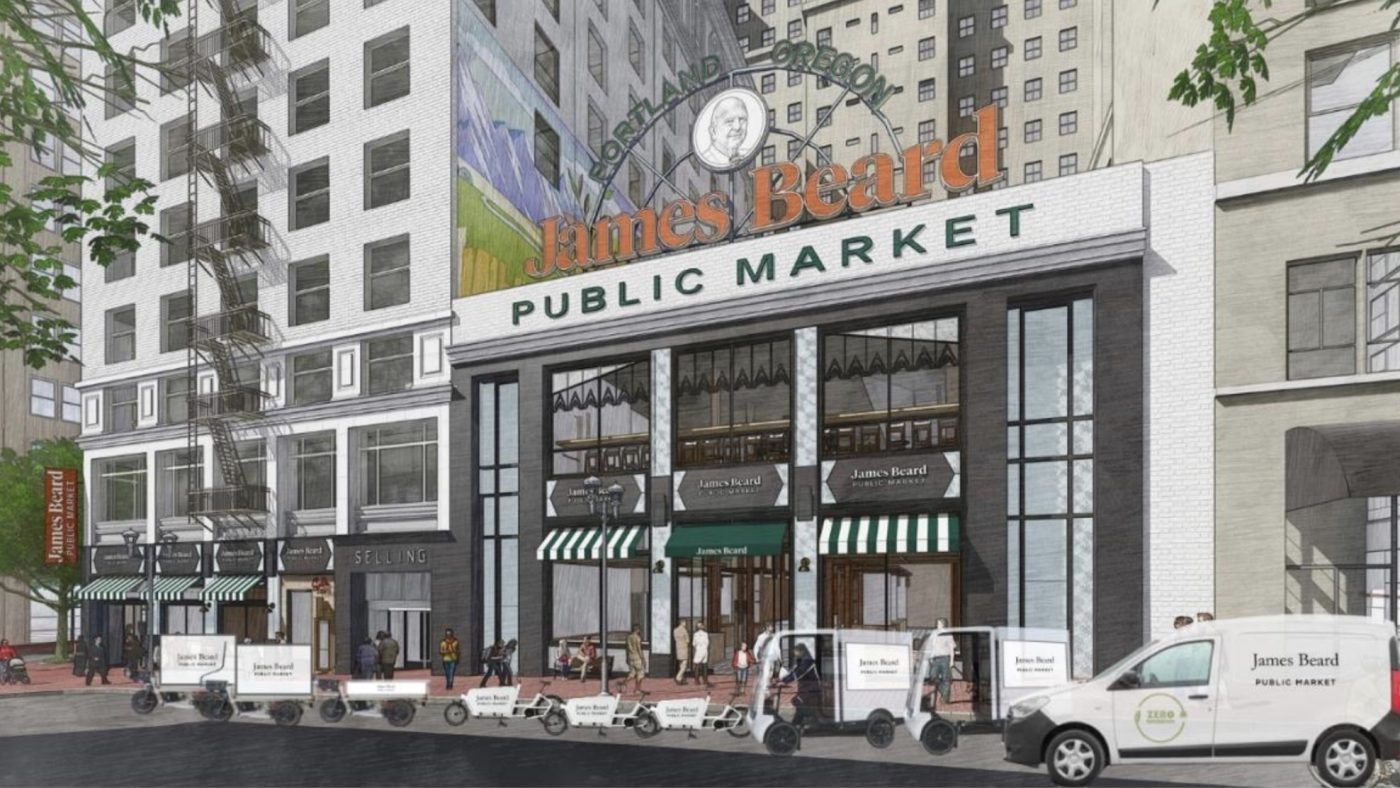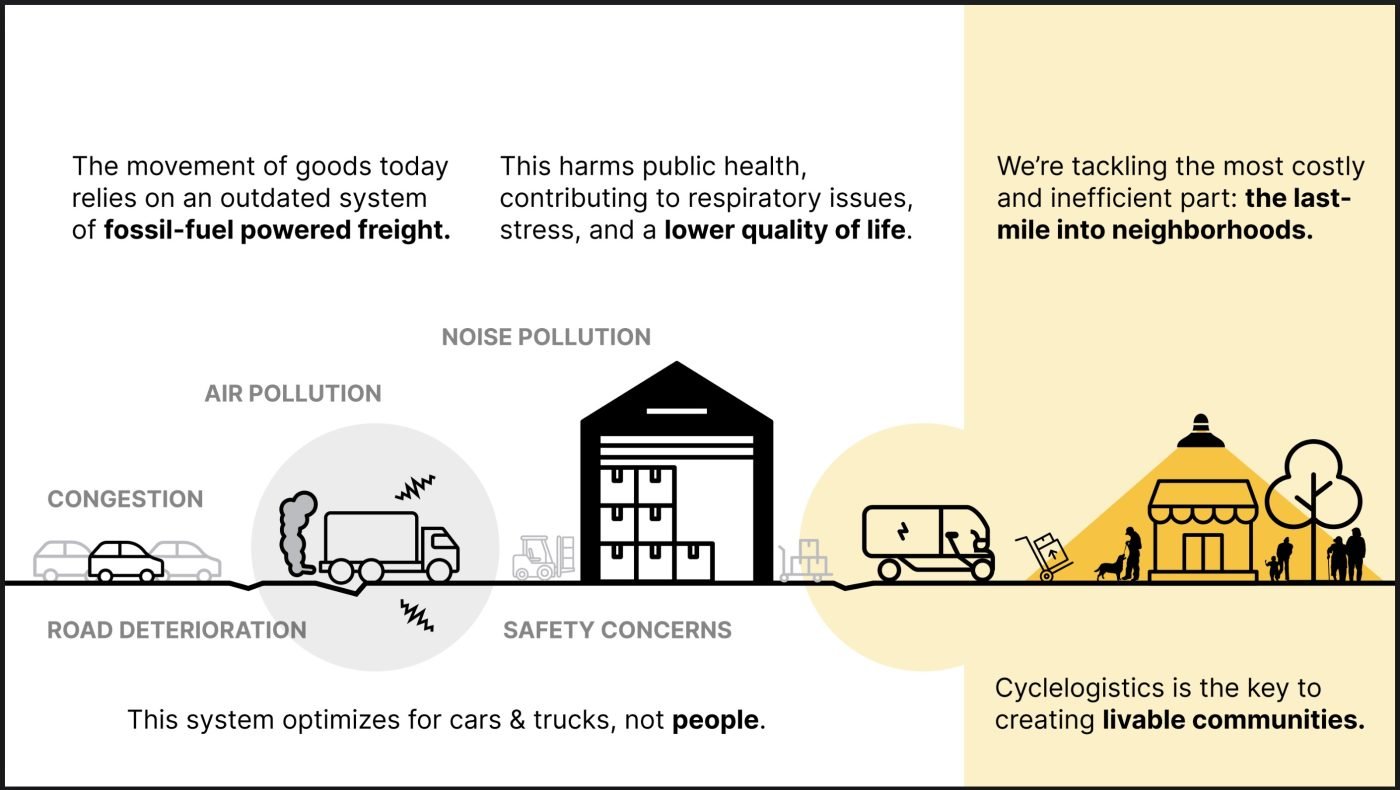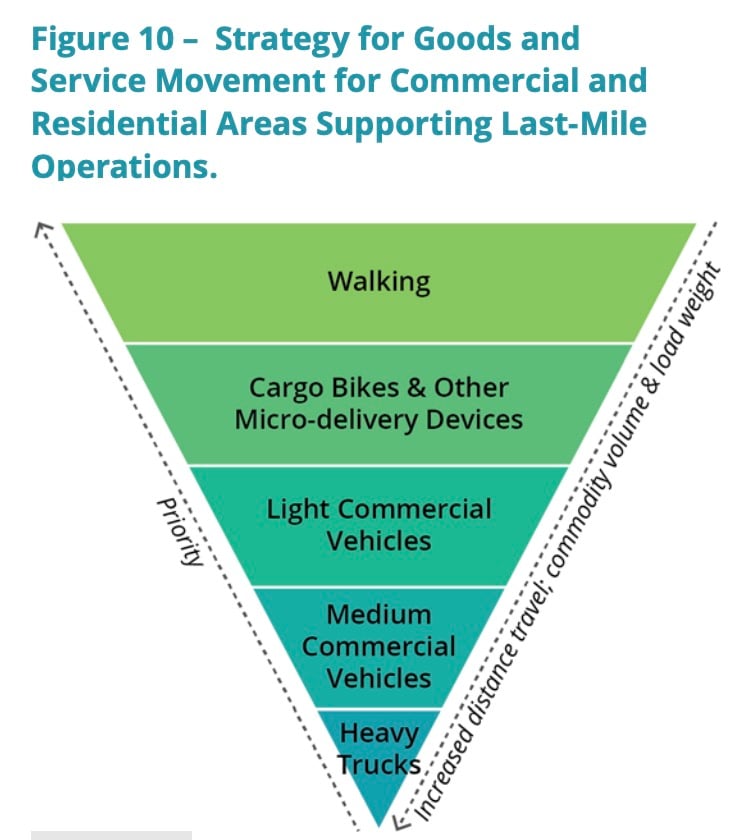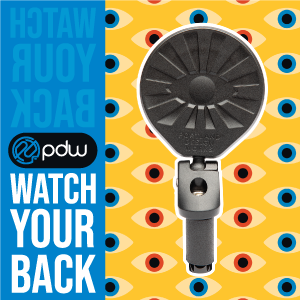
The James Beard Public Market, set to open next year on SW 6th and Alder (one block from Pioneer Square), is one of the most important steps yet in the revitalization of downtown Portland. With about 40 vendor spaces under one roof in the busy central city, planners must be mindful of how they’ll be restocked. After all, it would be embarrassing for Portland if a bunch of large trucks spewing toxic emissions were parked out front.
Good thing there’s another way: What if the market worked with the City and innovative local businesses to create a zero emission microhub that could serve the new market with electric cargo trikes and small electric trucks? That’s an idea currently being tossed around by a Dream Team of experts who hope their plan gains traction in time for opening day.
Franklin Jones, the CEO and founder of B-line Urban Delivery, tells BikePortland he’s shopping around a proposal to create a, “zero emissions logistics model” for the market. Jones is among a group that includes Portland Bureau of Transportation Urban Freight Coordinator Russ Brooks, James Beard Public Market Executive Director Jessica Elkan (who’s leading this proposal), and Honda Brand Strategist June Jashinski (I explain the Honda part below). These four have come together on a proposal they hope to present at a panel at the upcoming SXSW Conference in Austin, Texas in March.
Their presentation is titled, “Rethink Public Markets: Zero Emissions Delivery and Microhubs.” It’s currently one of dozens of panels being proposed for SXSW, which are chosen in part by a vote of the public. Here’s the presentation blurb:
“Picture a market bustling with people as they browse local products, and fresh Oregon produce. Public markets unite people from diverse backgrounds, but truck traffic often follows. This session explores a first-of-its-kind vision by the Portland Bureau of Transportation, B-line, James Beard Public Market, and Fastport to transform the way goods move from farm to vendor. By centralizing deliveries, and using eQuads for the last-mile, this model reimagines public markets, transportation, and urban spaces for communities, creating a model for a more human-first, zero-emissions future.”
Jones and PBOT are not newcomers to these concepts. B-line has operated in Portland since 2009 and Jones currently oversees a fleet of electric trikes that serve dozens of customers at his consolidation and distribution center in the central eastside. And the City of Portland has a long record of interest in electric, bike-powered delivery hubs. Since as early as 2021, the City has sought ways to dramatically reduce the number of large trucks downtown. Cargo bikes and micro-deliver hubs played a relatively prominent role in PBOT’s 2040 Freight Plan (adopted in 2023). And just earlier this year, PBOT wrapped up a demonstration project for a Zero Emission Delivery Zone downtown and issued a request for information (RFI) for a micro-delivery hub pilot that would be operated out of a city-owned parking garage.
Why is Honda involved in this? Turns out they’ve just debuted a new “Fastport” eQuad prototype that’s tailor-made for last-mile business deliveries. Fastport isn’t just a vehicle, Honda says it’s a “fleet-as-a-service” micromobility venture that comes with a turnkey system of software, swappable batteries, service, and more.
Jones and the folks behind the James Beard Public Market see their proposal as a chance to show the world that urban, zero emission delivery can be a reality. As of today, no contracts have been signed and no funding has been identified — although they’ve applied for a Portland Clean Energy Fund (PCEF) grant. Given the experiences and connections of this all-star team and all the excitement about the market, hopefully they can get make funding happen.
If you think this is a cool idea worthy of exploration, go over to the SXSW panel picker and vote for the presentation. You have until August 24th to show your support.





